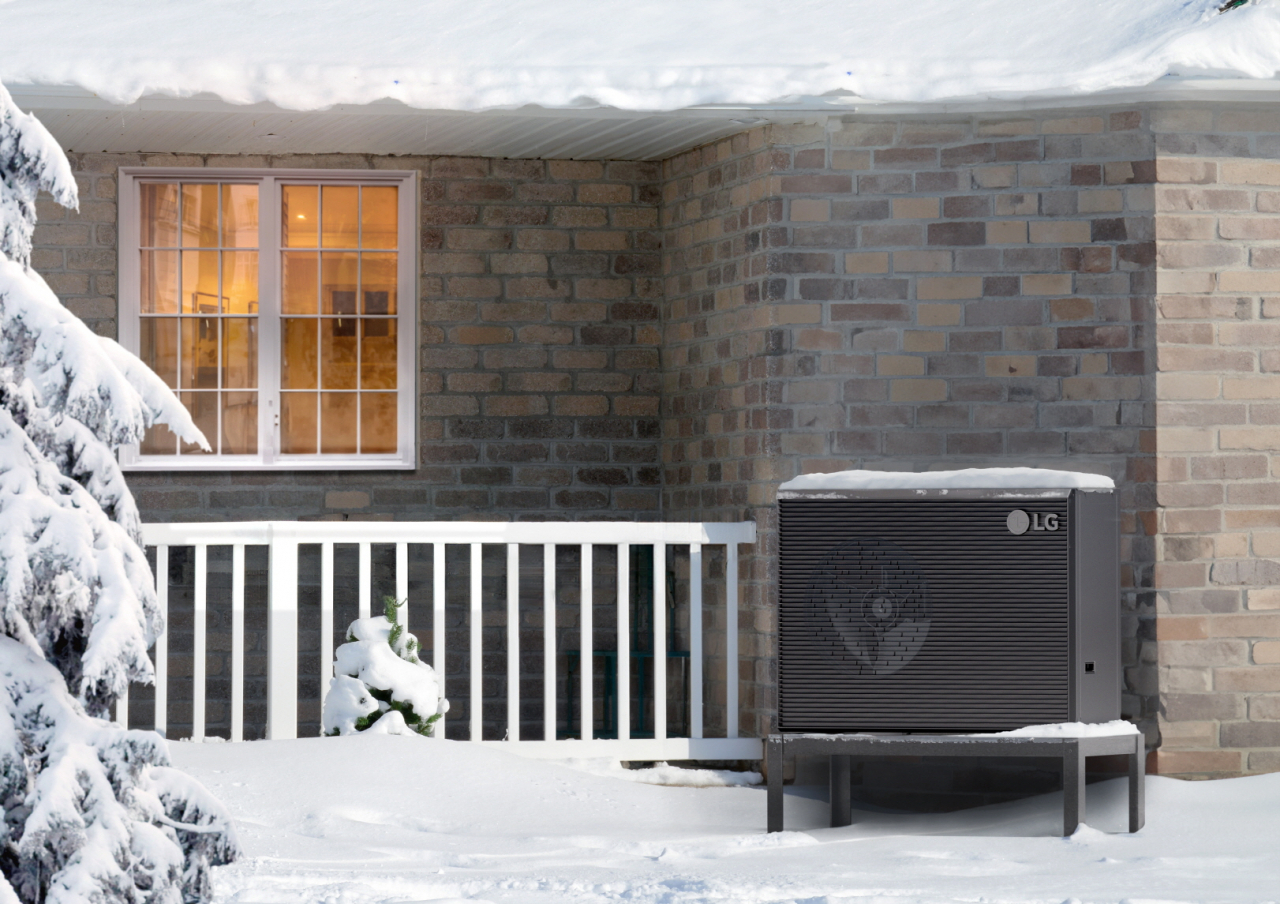 |
LG Electronics Therma V R290 Monobloc (LG Electronics) |
LG Electronics said Sunday it has established a consortium in China to accelerate the development of the core technologies for next-generation heat pumps, adding to its research hubs in North America and Europe.
Under the collaboration agreement, LG will be working with leading heating, ventilation and air conditioning (HVAC) researchers from Harbin Institute of Technology, Shanghai Jiao Tong University and Xian Jiaotong University, the company said.
The company has been expanding its research and development efforts in advanced heat pumps, and has forged ties with research institutes in Alaska in the US and Oslo in Norway.
“We will target the global HVAC market with differentiated solutions, by developing next-generation heat pump technology that is tailored to address different demands in key markets in the world,” LG Electronics Vice President Lee Jae-sung leading the company’s air solutions business division said.
With the latest consortium, LG will run two research facilities, one in Harbin, a city famous for harsh winters, and Mohe, the northernmost city in China that once recorded temperatures below minus 50 degrees Celsius.
The cities have ideal environments for the company to research and develop cold climate heat pumps with high energy efficiency, the company said. There, LG will test its key HVAC products, including air conditioners for homes, and collect data on heating performance and energy efficiency.
The company previously built similar facilities in Alaska in the US and Oslo in Norway -- cities with very low temperatures -- to study HVAC products in different regional climates and housing structures.
According to LG, the research facilities in Alaska have been built like real-world homes, equipped with a diverse range of sophisticated LG HVAC solutions including ducted and duct-free indoor and outdoor units, as well as the company’s Inverter Heat Pump Water Heater.
Oslo offers a similarly cold climate for research, with the region's high humidity considered one of its distinguishing factors, the company explained.
LG aims to secure a footing in the global HVAC market and has been introducing various products facilitating its advanced inverter technology in the compressor, and high-quality fan, heat exchanger and artificial intelligence engine.
The company is also working on building a complete supply chain in each region so that the entire process from research to production and sales can be done in one location.
The company currently operates five air solution research centers in Korea, the US, Europe and India. It also runs HVAC academies in 62 cities in 43 countries, training over 30,000 engineers annually, the company said.
According to market tracker IBISWorld, the global HVAC market was valued at $58.4 billion in 2023, and is expected to reach $61 billion in 2028.





![[Herald Interview] How Gopizza got big in India](http://res.heraldm.com/phpwas/restmb_idxmake.php?idx=644&simg=/content/image/2024/11/20/20241120050057_0.jpg)

![[KH Explains] Dissecting Hyundai Motor's lobbying in US](http://res.heraldm.com/phpwas/restmb_idxmake.php?idx=644&simg=/content/image/2024/11/20/20241120050034_0.jpg)